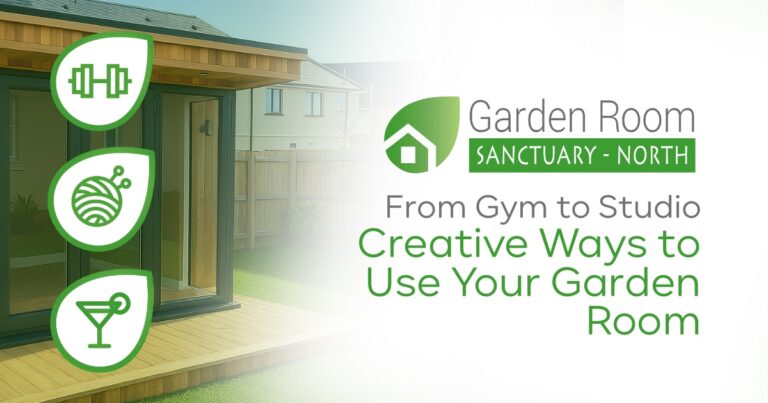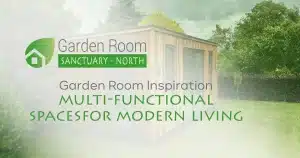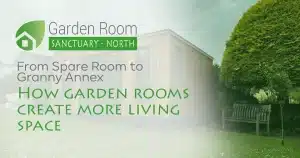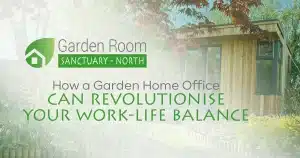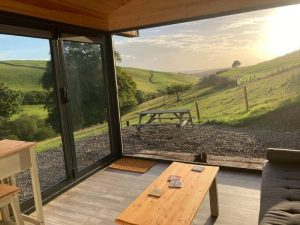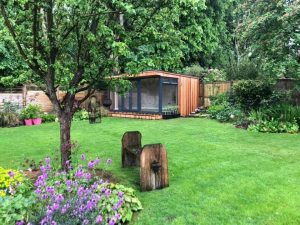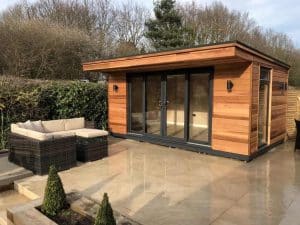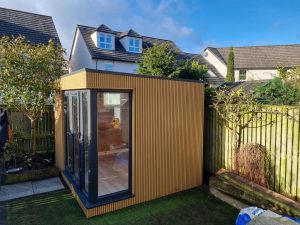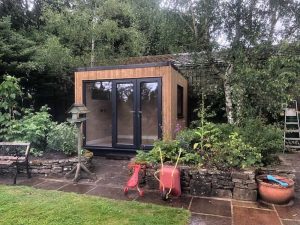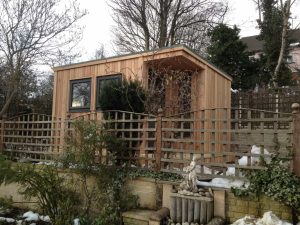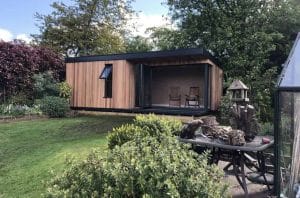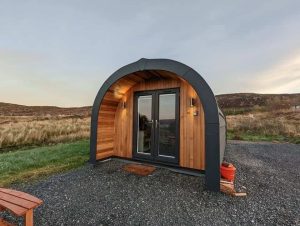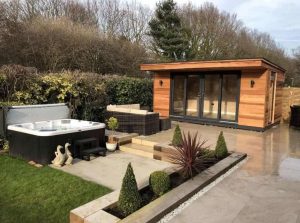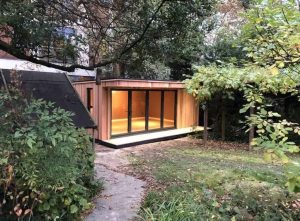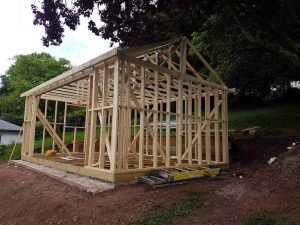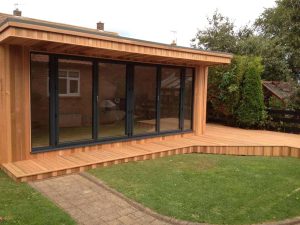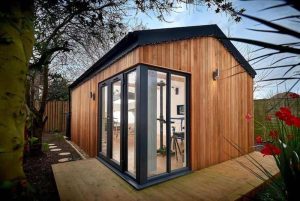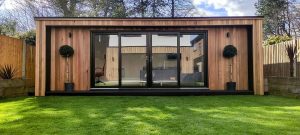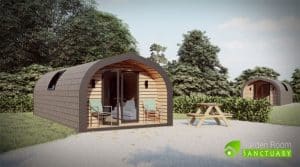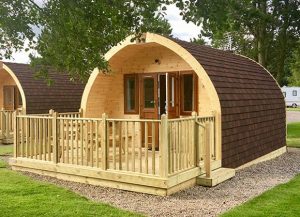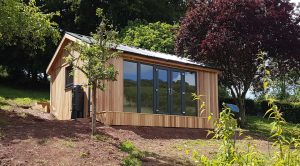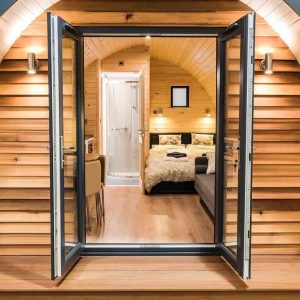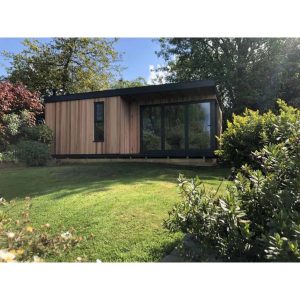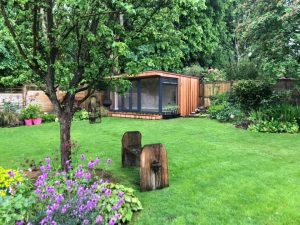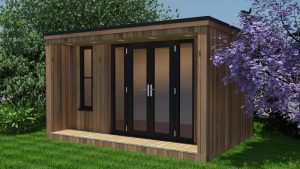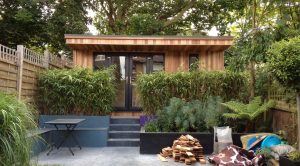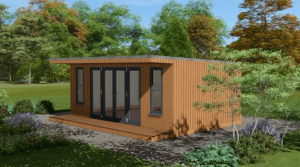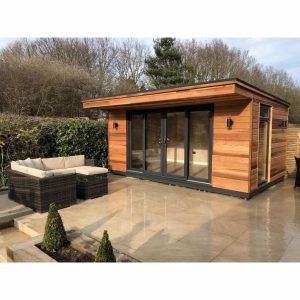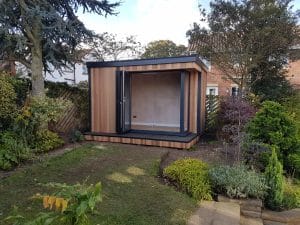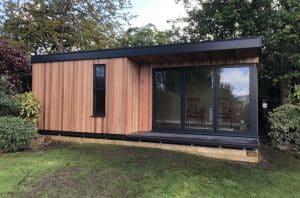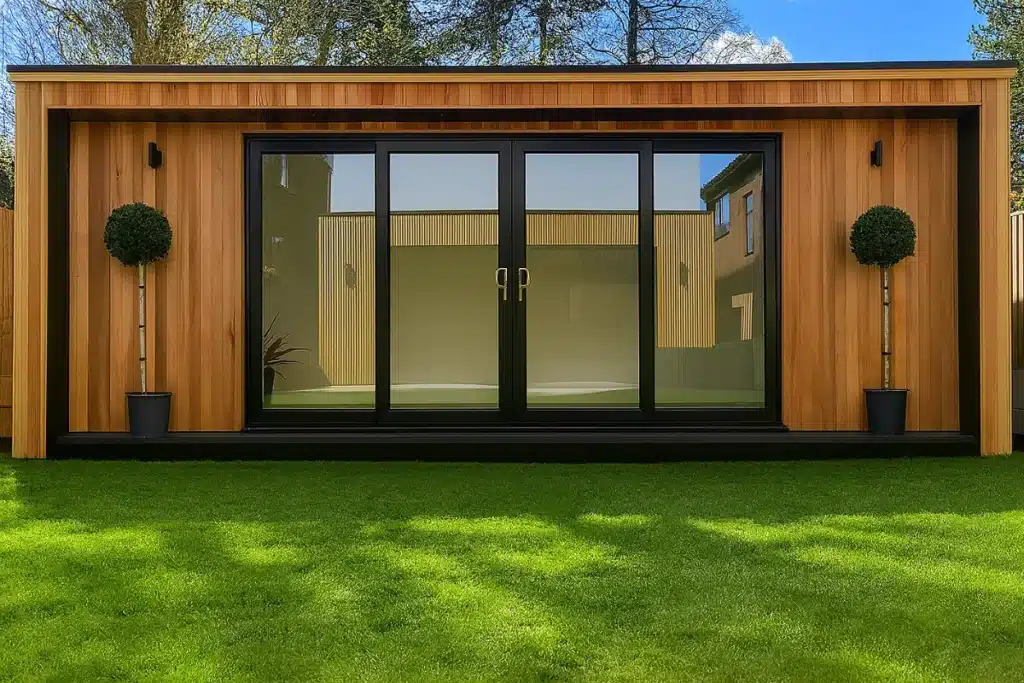It’s a big claim, isn’t it, that a garden room could improve your wellbeing. They can obviously give you space, and maybe the opportunity to spend more time doing the things you want to do. But improving your wellbeing? Well, you might be surprised.
Five Ways Garden Rooms Can Improve Your Wellbeing
Getting closer to nature
It’s become widely accepted that spending time in nature is good for you. The Mental Health Foundation says that ‘people who are more connected with nature are usually happier in life and more likely to report feeling their lives are worthwhile.’ And while spending time in a garden room may not provide the same connection to nature as hiking in the fells or digging in an allotment, a well-designed garden room still allows you to see the outside world, and feel grounded within it. Studies have shown that even a small amount of exposure to plants and other natural elements can lower cortisol (a stress hormone) production and improve mood. Employing biophilic design, garden rooms are intended to bring a little tranquillity
Peace and space
The UK’s homes are getting smaller. This can mean that no matter how much you love your family, there will be times when it feels like you’re all living on top of each other, and you simply can’t find the space and peace to get things done. Which can be really stressful, whether you work from home or simply wish to enjoy a hobby. A garden room offers an escape, while keeping you conveniently close to home. Simply walk down the garden and shut the door on stress and distraction, so you can concentrate on doing what you need to do.
A place for creativity and productivity
As well as shutting out stress, garden rooms can actively enhance creativity and cognitive function. Research suggests that working in an environment that allows exposure to nature can improve brain activity, blood pressure, mental health, physical activity, sleep, creative thinking and creative impulses. Making your work and leisure time more productive and enjoyable.
Increasing vitamin D intake
Vitamin D deficiency is increasingly common in the UK, particularly in the winter and spring. This is because of the low levels of natural light. By spending time in an environment, like a garden room, that allows plenty of natural light to flow in, you can enhance your vitamin D intake. Which is essential for bone health, immune function, and mood regulation.
Recreation your way
Regardless of how you spend it, recreation time is good for you. It gives you the opportunity to unwind, destress, relax, and do things that make you happy. A garden room can provide a dedicated space for you to do just that. You may opt to use it as a home gym, which will improve your physical wellbeing as well as making you happy. Separate from the house, a garden room makes the perfect quiet retreat to meditate, do yoga, and practice mindfulness, helping to reduce symptoms of depression and anxiety. You may use it as a family space – a cinema room, games room, or play room – helping to boost family relationships and emotional well-being. Or it might become your studio where you can play music or paint away your worries. Whichever option applies to you, a garden room can give you a space to be.
Garden rooms are undeniably functional spaces. They provide you with room to work and play. They enhance the footprint of your home, and bring added value to your property. But in doing so, they also contribute to improved mental and physical health. Whether you’re looking to work without stressful disturbances or relax in a way that suits you, a garden room could enhance your home and transform your wellbeing.
Find out more about designing your own customised garden room from Garden Room Sanctuary.



